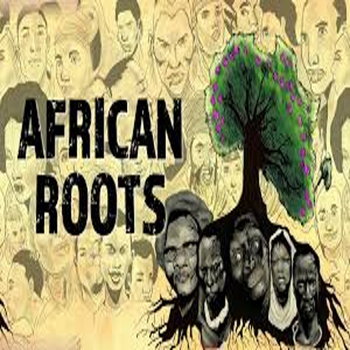
Queen Muhumuza: Fighting colonialism in East Africa
Loading player...
About a hundred years ago in Uganda, Queen Muhumuza stood against patriarchal, colonial and chauvinist forces. She was a spiritual leader, a military leader and a fighter for social justice.
When did Muhumuza live? Queen Muhumuza's exact date of birth is not known but her life history spans from the 18th to the 19th century. She was a wife of Rwandan King Kigeli IV. When, in 1895, her husband died and her son was denied the throne, she rebelled against the Rwandan establishment and colonial powers. She moved to Uganda, was finally captured by the British and imprisoned in Mengo where she died in 1945. She never got an opportunity to return to her cradle land.
What was Muhumuza renowned for? Muhumuza, also spelled Muhumusa, is said to have possessed spiritual powers hailing from the legendary Queen Nyabingi. Most of her followers never saw her face since the cult required her to hide in a basket. Described by colonial governments as "an extraordinary character", Muhumuza took up the fight against the three colonial powers in the region - the German, the British and Belgians from neighboring Congo. She is also remembered for resisting the establishment and the norms that limited women's rights in society.
What is the biggest controversy surrounding Muhumuza? Some of her followers actually believe Muhumuza herself to be Queen Nyabingi. Others refer to her as being the reincarnation, or being possessed by the spirit, of a Rwandan queen who lived several centuries back. Unfortunately, her history was never fully documented due to the patriarchal nature of society then and colonial imperialism.
What is Muhumuza's legacy? She inspired a whole anti-colonial struggle in Rwanda and Uganda. Today, her followers see her as a role model and a true representation of inclusion and resistance to norms that undermine sections of society. Her spirit lives on through the Rastafarian movement, where Muhumuza is referred to as Nyabinghi.
When did Muhumuza live? Queen Muhumuza's exact date of birth is not known but her life history spans from the 18th to the 19th century. She was a wife of Rwandan King Kigeli IV. When, in 1895, her husband died and her son was denied the throne, she rebelled against the Rwandan establishment and colonial powers. She moved to Uganda, was finally captured by the British and imprisoned in Mengo where she died in 1945. She never got an opportunity to return to her cradle land.
What was Muhumuza renowned for? Muhumuza, also spelled Muhumusa, is said to have possessed spiritual powers hailing from the legendary Queen Nyabingi. Most of her followers never saw her face since the cult required her to hide in a basket. Described by colonial governments as "an extraordinary character", Muhumuza took up the fight against the three colonial powers in the region - the German, the British and Belgians from neighboring Congo. She is also remembered for resisting the establishment and the norms that limited women's rights in society.
What is the biggest controversy surrounding Muhumuza? Some of her followers actually believe Muhumuza herself to be Queen Nyabingi. Others refer to her as being the reincarnation, or being possessed by the spirit, of a Rwandan queen who lived several centuries back. Unfortunately, her history was never fully documented due to the patriarchal nature of society then and colonial imperialism.
What is Muhumuza's legacy? She inspired a whole anti-colonial struggle in Rwanda and Uganda. Today, her followers see her as a role model and a true representation of inclusion and resistance to norms that undermine sections of society. Her spirit lives on through the Rastafarian movement, where Muhumuza is referred to as Nyabinghi.

